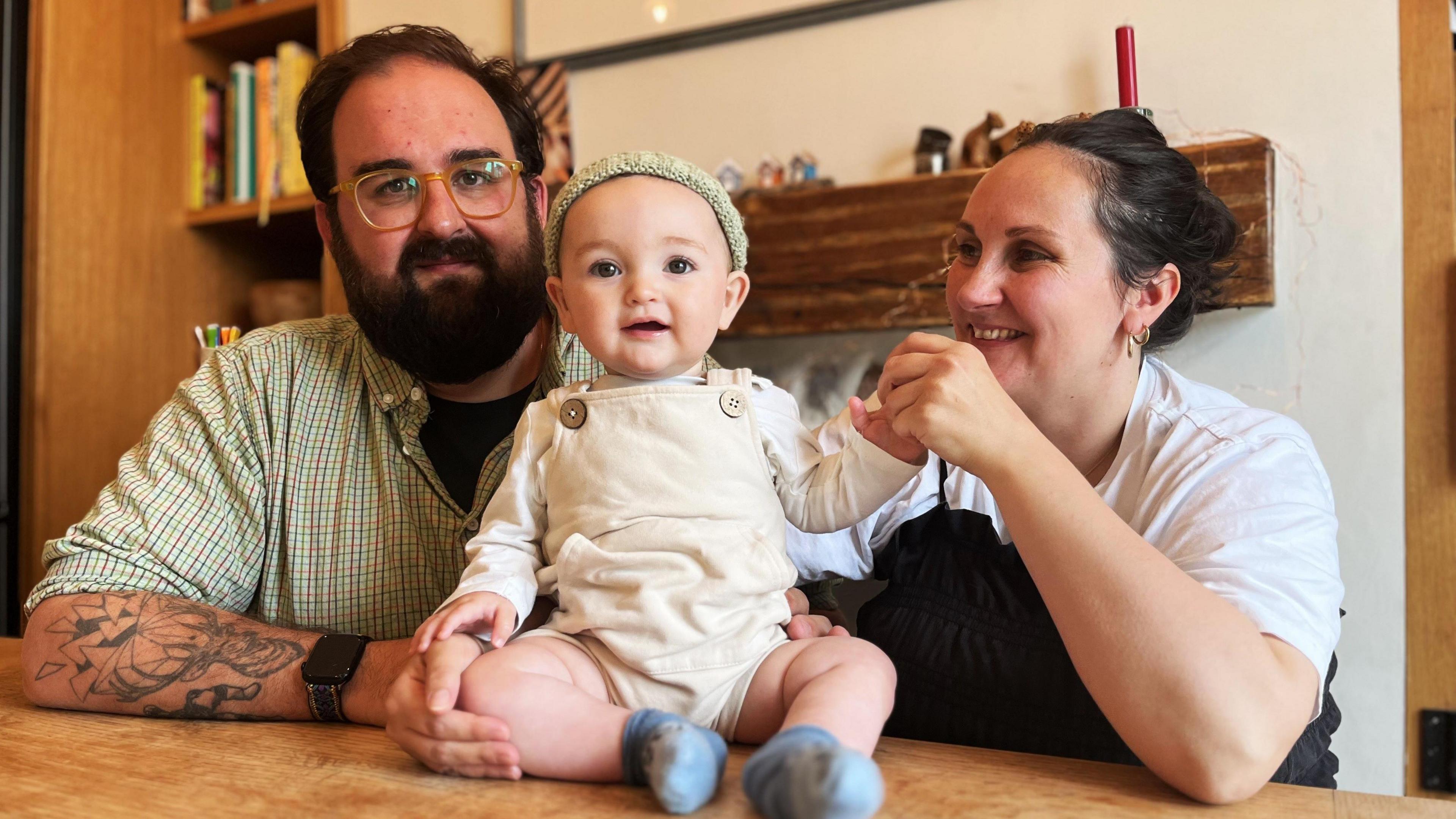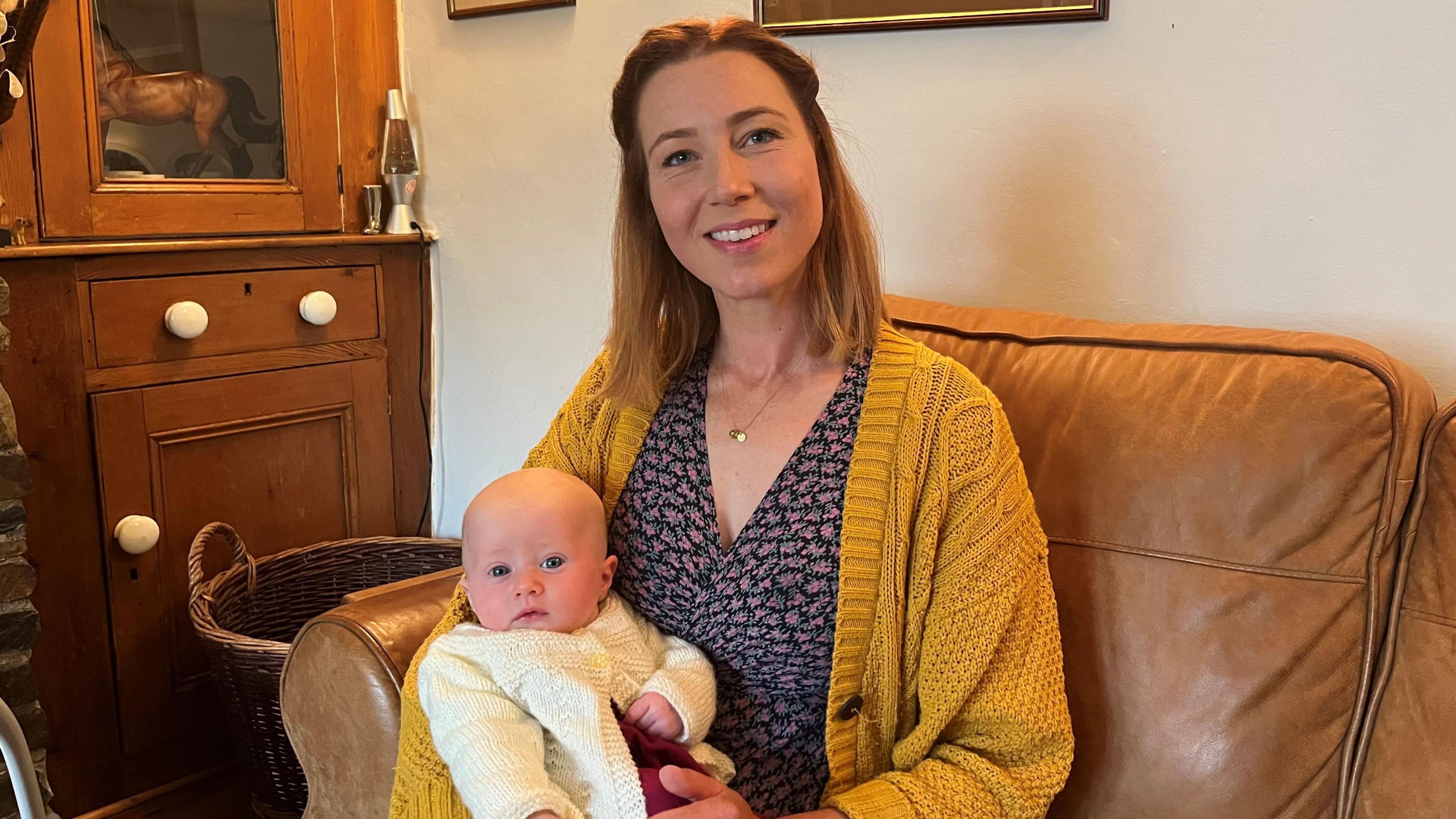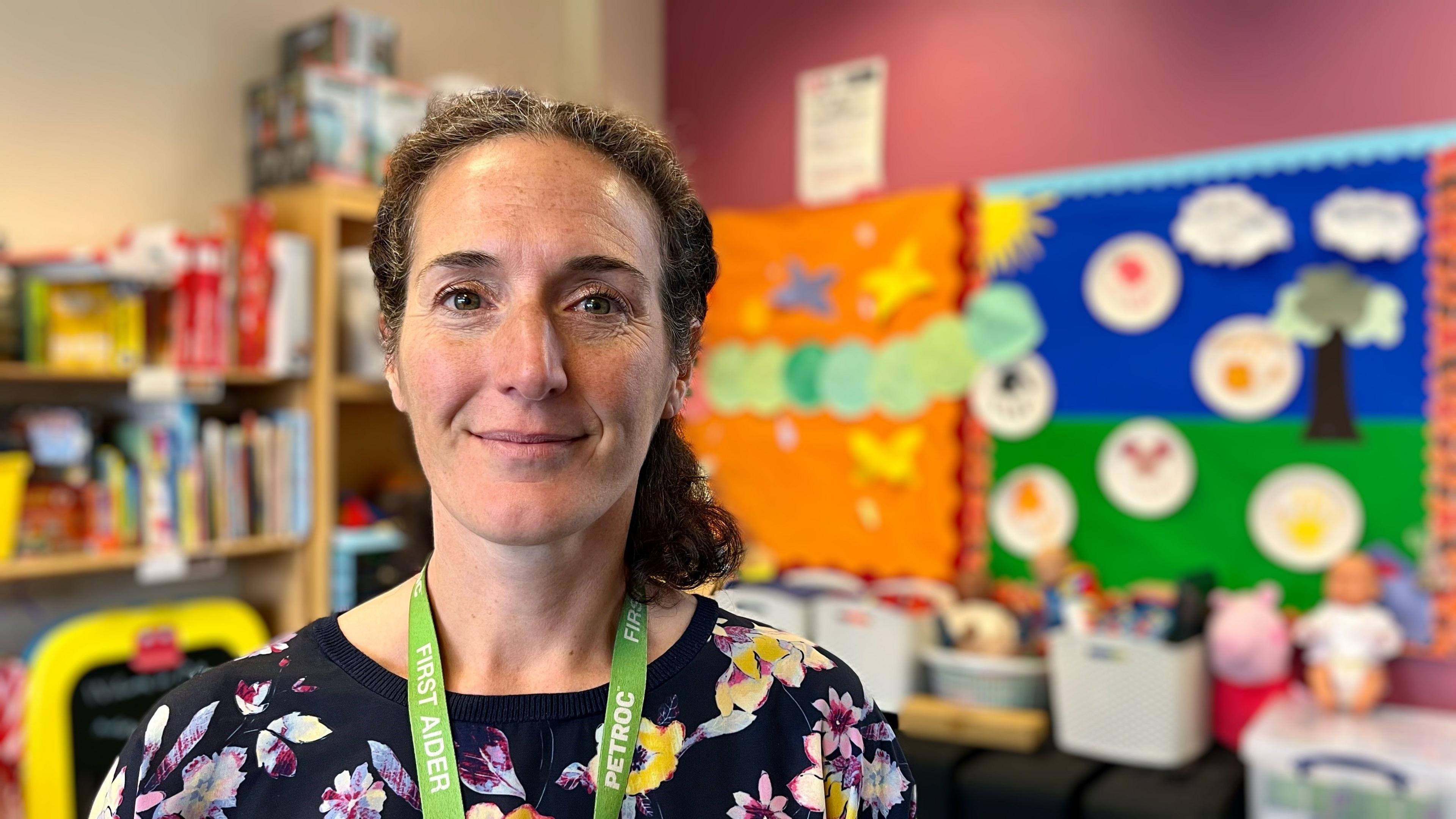'Scramble' for childcare as places fill up fast

Edmund Greaves and Ellyn Sargent Megicks struggled to find childcare for their baby
- Published
Parents have told of facing a "scramble" for places in the worst area in the country for childcare availability.
Latest figures from the Office for National Statistics (ONS) show the district of Torridge in Devon has the joint fewest number of childcare places in England.
Parents in the area said they had called dozens of childcare providers only to be told there was no space and it was not worth joining the waiting list.
Political parties have promised to increase the amount of childcare in the run-up to the general election.
'Completely oversubscribed'
Edmund Greaves and Ellyn Sargent Megicks, who live in Bideford on the north Devon coast, said demand for childcare in the area far outstripped supply.
They said they had reserved a place with a childminder who then cancelled because of increased demand from parents when the government announced an expansion of childcare.
Mr Greaves, a personal finance journalist, said: "We ended up in a scramble trying to find a nursery or a childminder.
"We had to call up lots of different childminders and nurseries around the area.
"A new nursery opened up the street but it was completely oversubscribed, basically immediately."
The couple have now found a place using a combination of a nursery and a childminder but said the whole process had been "really frustrating".

Helena Lake said she had started to look for childcare when she became pregnant
Helena Lake, a dental nurse from the village of Shebbear, said she and her husband started to look for childcare as soon as she became pregnant with their second child.
She said trying to find childcare had been "really challenging".
"Everyone was fully booked," she said.
"One person I spoke to said they were full up until August 2027. Most people are full and not even offering a waiting list."
Ms Lake is trying to arrange childcare so that she can go back to work in January.
The figures from ONS, external showed Torridge and Walsall in the West Midlands had the least childcare places accessible per 100 children.
The study, which used Ofsted data, found affluent areas in England have the highest levels of childcare access with St Albans and Cambridge coming out top.

Clare Arthur runs courses in childcare at the further education college, Petroc, in Barnstaple
Low wages, low status and a lack of public transport in rural areas are three of the factors behind the shortage of childcare staff, according to a further education college which trains people to work in the industry.
Clare Arthur, faculty manager for education and business at Petroc, in Barnstaple, said the industry still struggled with being a "low status" job.
She said: "We're looking after real children - it has so much importance that I think people just don't recognise."
Regarding public transport, she said: "You have people who are willing and able to work and would like to do the job but just can't get there."
Gail Whenman, technical director at Petroc, said: "Our learners can actually earn more in other industries than they can in the childcare sector - they might go off to work in Sainsbury's where they are earning more money."
How will the political parties tackle childcare issues?
The Conservatives announced plans in April 2023 to expand childcare in stages. They introduced 15 hours of free childcare for eligible working parents of two-year-olds from April 2024. From September eligible children between nine months and two years old will get 15 hours of free childcare and all eligible under-5s will get 30 hours of free childcare from September 2025.
Labour have committed to backing this plan. The party says falling birth rates mean it will be able to convert 3,000 unused school rooms into nurseries and it is also promising a free breakfast club place for every primary school child.
The Liberal Democrats say they will give free, full-time childcare for children of working parents from nine months old and for all children from the age of two. They would also review the rates paid to providers for free hours.
The Green Party says all families should get 35 hours of free childcare from the age of nine months.
Reform said it would increase child benefit for one- to four-year-olds to encourage parents to spend more time with their children.

Follow BBC Devon on X (formerly Twitter), external, Facebook, external and Instagram, external. Send your story ideas to spotlight@bbc.co.uk, external.
